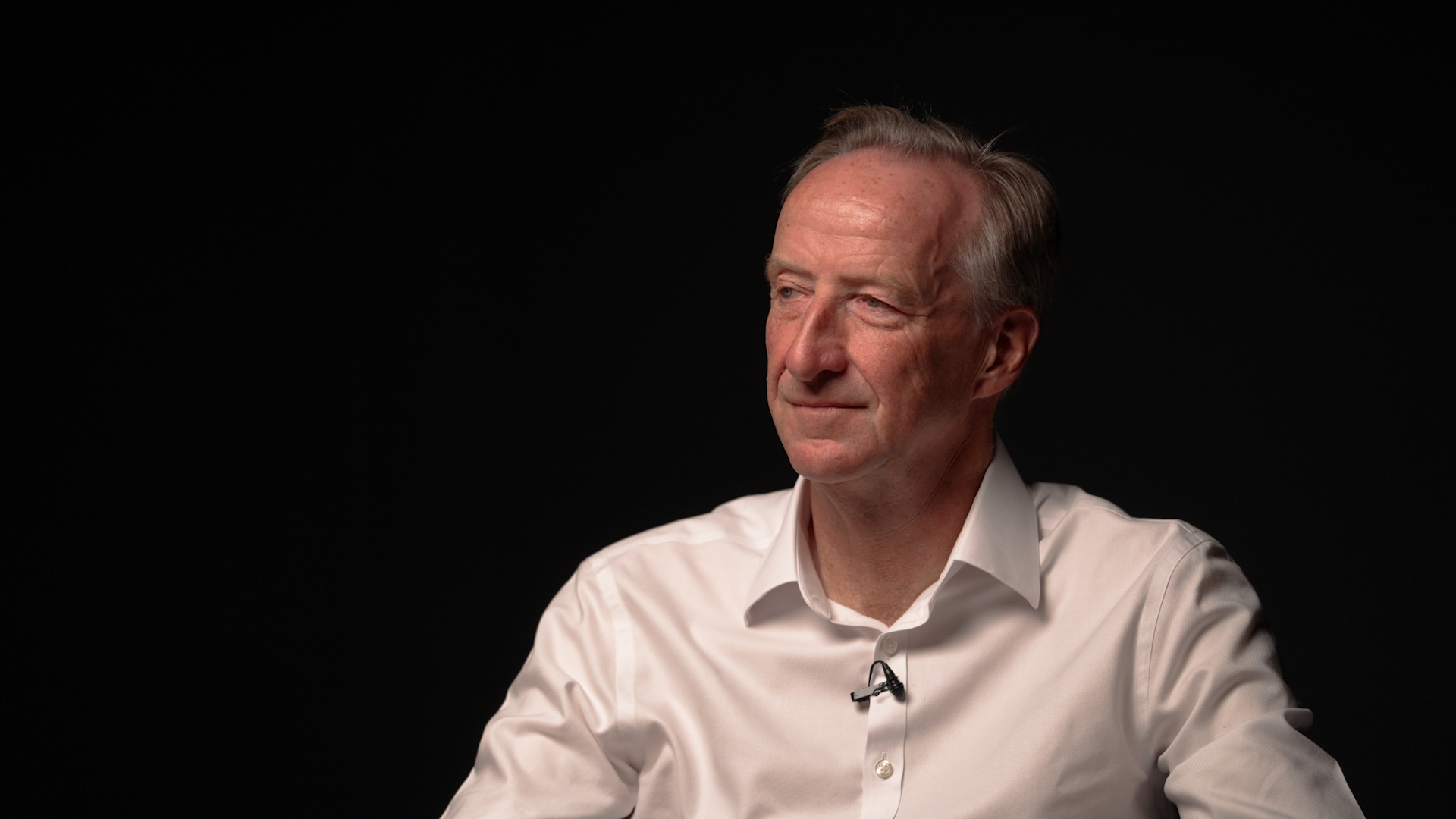Britain needs to rearm and build reserves through a form of national service to defend against Vladimir Putin’s hopes of dominating eastern Europe and undermining the West, the former head of MI6 has warned.
Sir Alex Younger said people in the UK must realise that the threat from Russia – and its closeness to the US – is real, adding: “Putin and Trump together have done their best to persuade us that the rules have changed.”
Reflecting on whether Britain has the mettle for a full-scale war, he told Independent TV: “I worry – we have disarmed militarily, self-evidently. We’ve largely dismantled our military and industrial base, which is a big problem.
“We have, for many years, been completely free of any form of existential threat.
“We’ve unforgivably… launched a set of wars of choice, which have imposed sacrifice needlessly on young people and there’s great cynicism about this idea of collective effort to defend your country.
“I think we’re more comfortable thinking about the army as like the England football team; they go and do their thing over there and we watch it on telly – and that can’t happen anymore.”
Watch the full episode of The Conversation: Shifting Alliances with Sam Kiley, Alex Younger and Rachel Ellehuus here.

Discussing what needs to be done to prepare, Sir Alex, known as “C” during his time as spy chief, added: “You’d have to ask a soldier about the actual efficacy of things like conscription. I have no idea… I know that it just needs to be a more integrated feature of everyday life.
“I think that will bring broader benefits. So I think this is probably more about a more creative and broader conception of what the reserves is.”
Sir Alex, a computer science graduate and former officer in the Scots Guards, gave a distinctly British establishment response to the question of whether or not, after backing Putin so publicly, Trump could be working for Russia, an allegation which has been made against the US president in the past, without any evidence.
“I mean, who knows? I personally don’t think he’s a Russian agent. I went out of my way not to find out because why would you want to know? So I don’t know.
“In a sense, that’s not the point. The point is he agrees with Vladimir Putin. He agrees that big countries get additional rights over small countries, particularly in their own backyard.”
There can never have been a time before this when asked, in public, whether the president of the USA could conceivably be a Russian agent that the former head of MI6 would have replied with a political shrug.
Speaking on the first episode of The Conversation, a new expert-led discussion series on Independent TV, alongside the US defence secretary’s former envoy to Nato, Dr Rachel Ellehuus, Sir Alex said Britain had fallen behind other European nations in its ability, and willingness, to defend itself.
“It really depends on how close to Moscow you are. I think in Finland it’s well understood and there’s a properly integrated resilient culture where everyone is accustomed to playing their part. I think we go to Portugal at the other end that’s just not true – and in a sense that’s understandable.
“I think the UK is quite conflicted as well. We’ve got this astonishing history, which makes people readier to conceive of Britain playing a much more active role, but I think here too, there’s real concern about being asked to actually do stuff.”

By that he means contribute large numbers of people to fight but also to comprehend that a hybrid war with Russia – where disinformation, cyberattacks and economic pressure are equally important – is already underway.
Dr Ellehuus, now director general of the Royal United Services Institute, Britain’s leading security think tank, laid out the threat that European nations are urgently trying to cope with.
This threat has intensified following the sudden change in strategic ideology in Washington under Trump.
Since his inauguration, Trump has signalled that Europe must pay for its own security. He has also said that he no longer sees the Nato alliance that has underpinned western security for 80 years, as useful.
He has threatened to colonise both Canada and Greenland. He has also supported most of Putin’s claims on at least a fifth of Ukraine and agreed that it may “not be a country”.
Dr Ellehuus, an American, said that while the threat posed by the Kremlin had been persistent, it has been the dramatic shift in Washington that has been the greatest strategic shock.

“The galvanizing moment for Europe? Yes. Take a look at the Trump-Putin relationship or the Trump/Maga-Putin relationship,” she said.
“President Putin is trying to redraw the map. Some of the changes that were made at the end of the Cold War that left Ukraine, Georgia and Moldova as not part of the Soviet Union but neither part of Nato or the European Union, left them in a kind of limbo.
“[It] created an opportunity for him to chip away at the margins of those countries and create pockets of instability or insecurity that would prevent them from fully integrating into Nato or the EU.
“Am I saying he’s going to invade the Baltic states or Poland tomorrow? I’m not. But he is going to test the boundaries of what we call Article 5, which is the commitment that an attack against one Nato ally is an attack against all of them.
“He’s already been pushing the boundaries of that through below-the-threshold activities that aren’t conventional attacks.”
According to the Washington-based Centre for Strategic and International Studies, there was a 300 per cent increase in unconventional attacks on Europe by Russia last year, 2023-2024.
“Roughly 27 percent of the attacks were against transportation targets (such as trains, vehicles, and airplanes), another 27 per cent were against government targets (such as military bases and officials), 21 per cent were against critical infrastructure targets (such as pipelines, undersea fiber-optic cables, and the electricity grid), and 21 per cent were against industry (such as defence companies),” the CSIS said in a report last month.

Sir Alex said Trump, Putin and China’s Xi Jinping, appear to be carving the world up into spheres of influence which sweep aside notions of national sovereignty in places like Europe.
On top of that, the long-standing issue of trust is now being undermined by the US. Both in terms of military doctrine, as shown by Nato’s article 5, and in the Five Eyes intelligence-sharing system between the UK, US, Canada, Australia and New Zealand.
Trust between the US and its allies under Trump was strained when Sir Alex was in charge at MI6, after Trump blurted out secret intelligence of an Isis bomb-plot to Sergei Lavrov, the Russian foreign minister.
It also has been badly damaged by the recent Signal messaging group scandal.
The mess flowed from the US president’s decision to put inexperienced leaders in the top intelligence jobs, Sir Alex suggested.
“Whatever you think about that, it comes at a cost just in terms of a basic understanding of the environment in which we all operate and the threats that exist.
“On the face of it, using a phone, an iPhone or whatever it is, to plan an attack you don’t want your enemy to know about, is not sensible.”

The use of personal mobile phones for top secret communications was unforgivable, Dr Ellehuus said.
These communications were usually held over secure video link because they involved not only US (or UK) personnel, but forces and intelligence agents who could be at risk on the ground.
Whatever the strains, and new risks, that the Trump administration has now brought to western intelligence agencies, Sir Alex said CIA officers would “die in a ditch” to protect their human sources.
“It is a very unusual time. But all I am saying when it comes to the defence of the integrity of our capabilities as five [eyes], there will be a very, very strong machine in operation to retain the integrity, even if I can’t belittle the idea that it’s more at risk than it was.”


